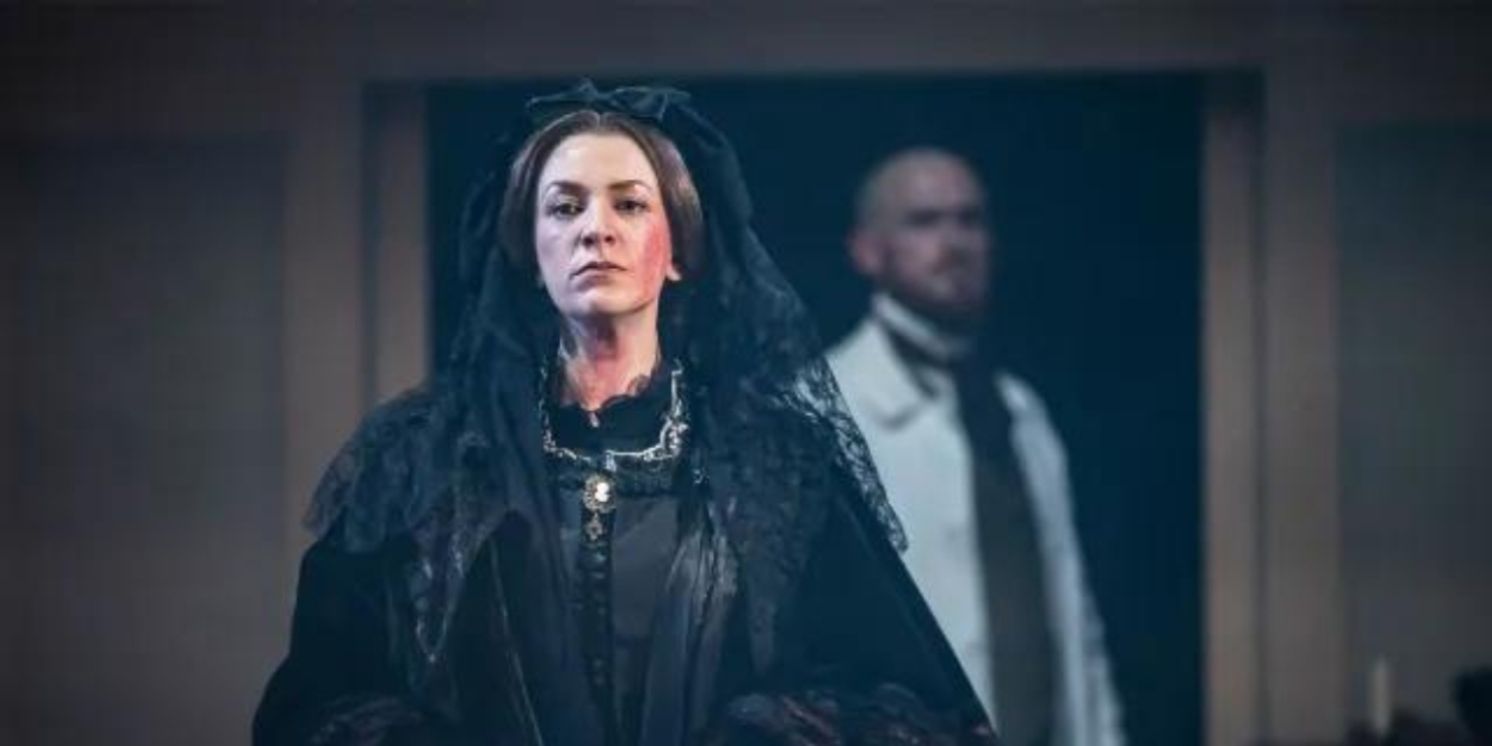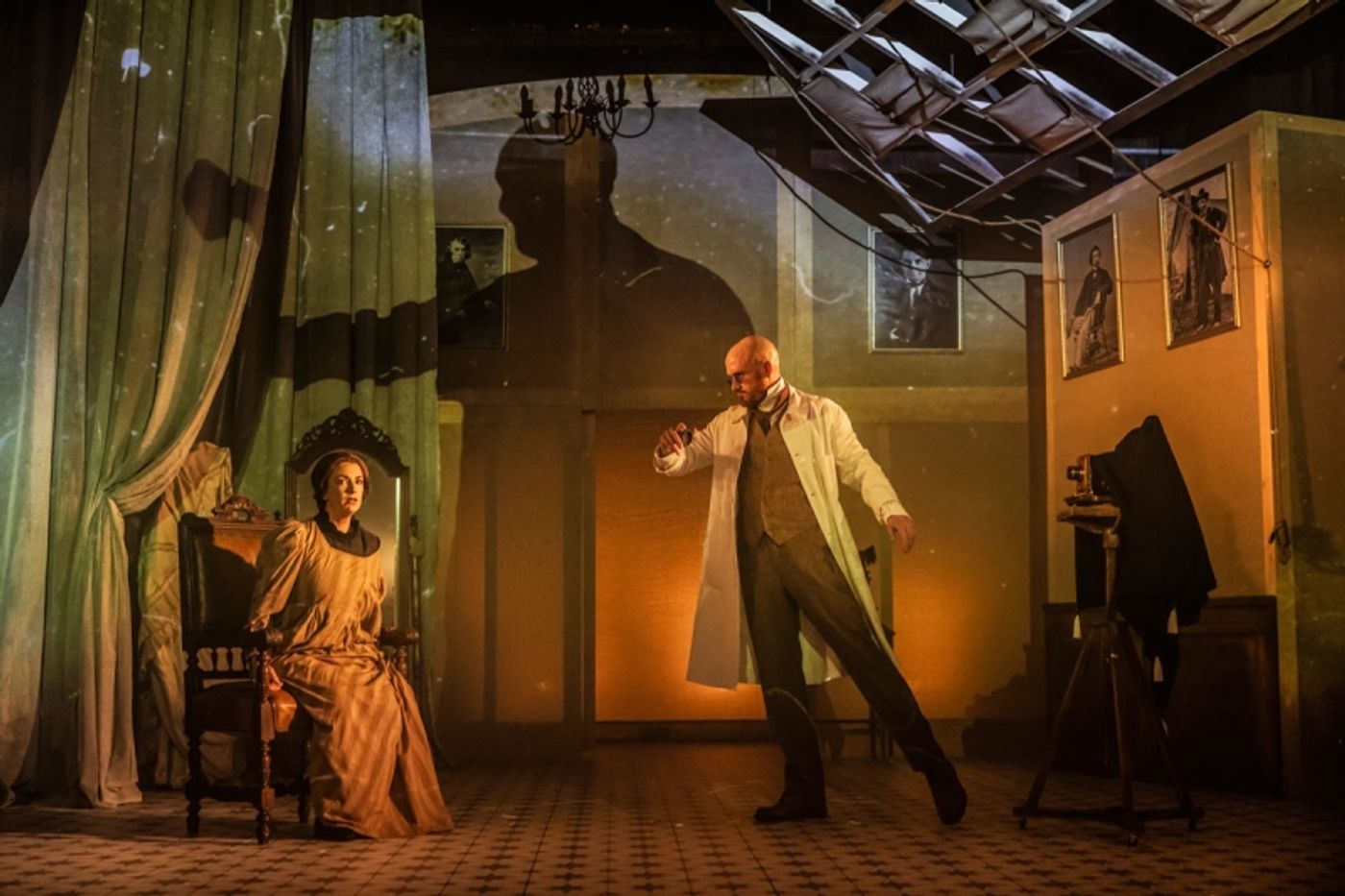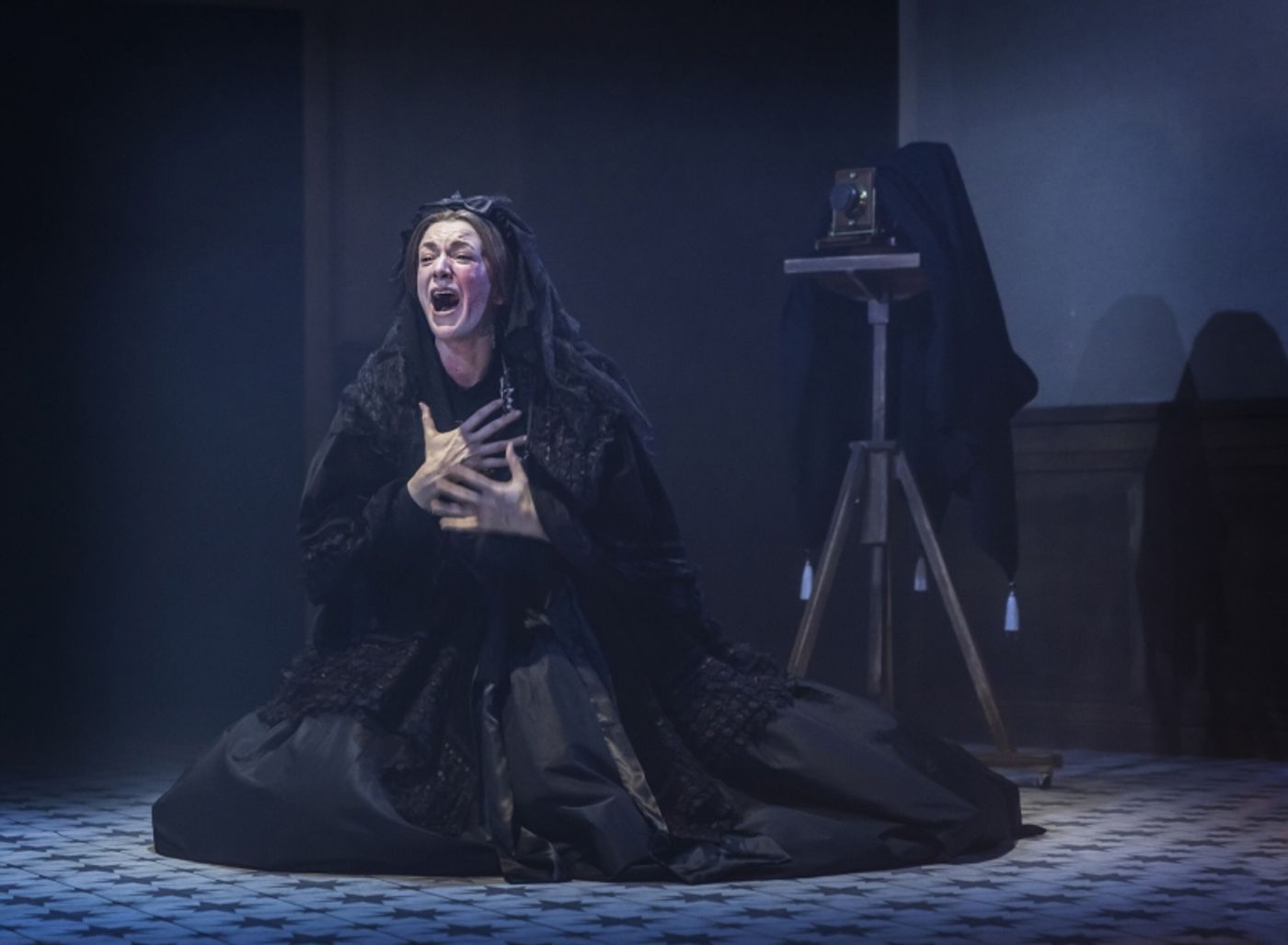Review: MRS PRESIDENT, Charing Cross Theatre
Mary Lincoln's grief and instability take the stage in an affecting, nightmarish play.

![]() “I cannot be remembered this way!” screams the 16th First Lady of the United States of America. Grief-stricken, with a terrible reputation lying on her shoulders, Mary Lincoln seeks to readjust her narrative by employing the same photographer who immortalised her late husband. But Mathew Brady has his own agenda, and it’s at once artistic and personal. She wants to be recognised as more than a suspected traitor with severe mental health issues.
“I cannot be remembered this way!” screams the 16th First Lady of the United States of America. Grief-stricken, with a terrible reputation lying on her shoulders, Mary Lincoln seeks to readjust her narrative by employing the same photographer who immortalised her late husband. But Mathew Brady has his own agenda, and it’s at once artistic and personal. She wants to be recognised as more than a suspected traitor with severe mental health issues.
The road to the perfect commemorative photograph is anything but smooth with their two unruly personalities. Written by historian playwright John Ransom-Phillips and directed by Bronagh Lagan, Mrs President lives suspended between the lenses of history and fiction.
Miriam Grace Edwards and Sam Jenkins-Shaw butt heads in an undefined space - perhaps his workshop, perhaps one of her nervous crises. Gregor Donnelly’s set design is sophisticatedly cold in the desaturated hues that accompany Brady’s sparsely furnished vintage studio. It vaguely recalls an old ghostly glass plate where vignettes of emotional cruelty and harrowing recollections unfold. We meet Mary Lincoln (who will only respond to ‘Mrs President’) as she walks in, her movement dictated by her stiff crinoline and haughty demeanour. She’s a proud and severely self-aware persona, consumed by the thought of her legacy, of disappearing behind the man she married and made leader of her country.

‘I take up space where I’m permitted’, she says defiantly, while Brady’s infatuation with the power of making mankind immortal through his art takes hold of the action. We sit at the threshold of media scrutiny and both characters are conscious of what a good picture can do ('I am in every pocket and every purse in America' Brady says). What ensues is a fuzzy, affected inquiry on memory, remembrance, and the public perception of political figures. Edwards keeps it together with cocky dismissal at first, but swiftly slips into something that resembles a neurotic breakdown instigated by Brady’s unconventional methods.
It’s a production about her instability more than anything. The position of women in the Reconstruction era is given its duty of care, as is their subjugation to men - ‘I am a person, not a property!’ she pleads, but Brady is quick to remind her she is not a person, she’s a woman. The loss of her children weighs heavy, as does her insecurity in her role as devoted mother of the nation. Ransom-Phillips doesn’t hand feed any of this to the audience, who are asked to dissipate the clouds of non-linearity and go beyond Lagan’s stylistic take.

A touch of the supernatural transforms the play from historic record to individual nightmare. It works, but it interestingly leads to a bit of a baffling choice. Brady’s old-timey Northern English camera starts speaking to his Irish oak chair. They discuss their origins and lament their abuse at the hand of their owner. It’s bemusing, but it flips the script entirely and muddles the water of the plot. In other words, it’s now unnecessary. Other than that, the piece is as strong as it was in Edinburgh. It’s gained a more refined look and remains an accomplished dip into the mind of one of history’s most controversial wives.
Read our guest blog from Mrs President playwright John Ransom Philips here.
Mrs President runs at the Charing Cross Theatre until 16 March.
Photo Credits: Pamela Raith
Reader Reviews
Videos

